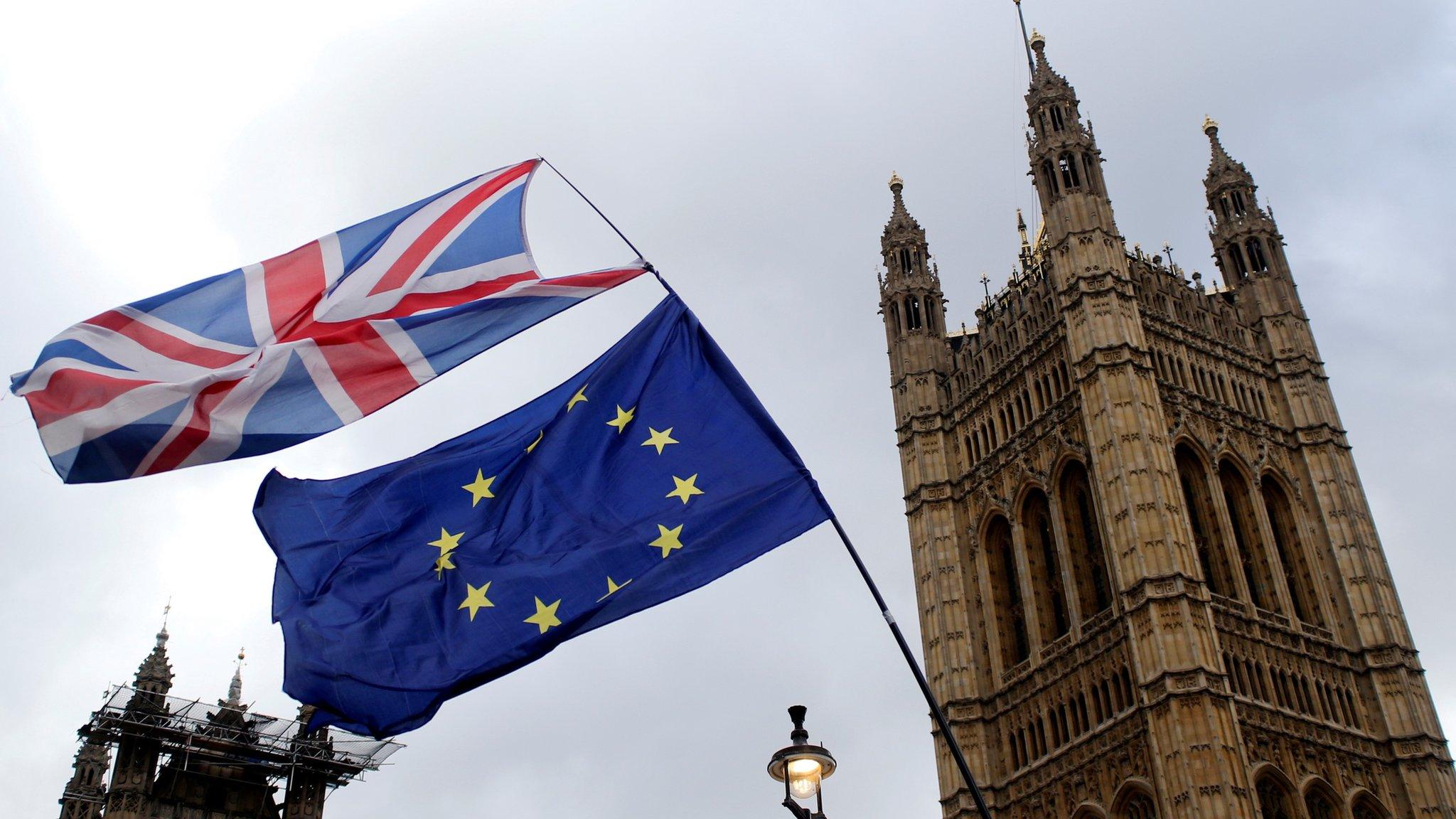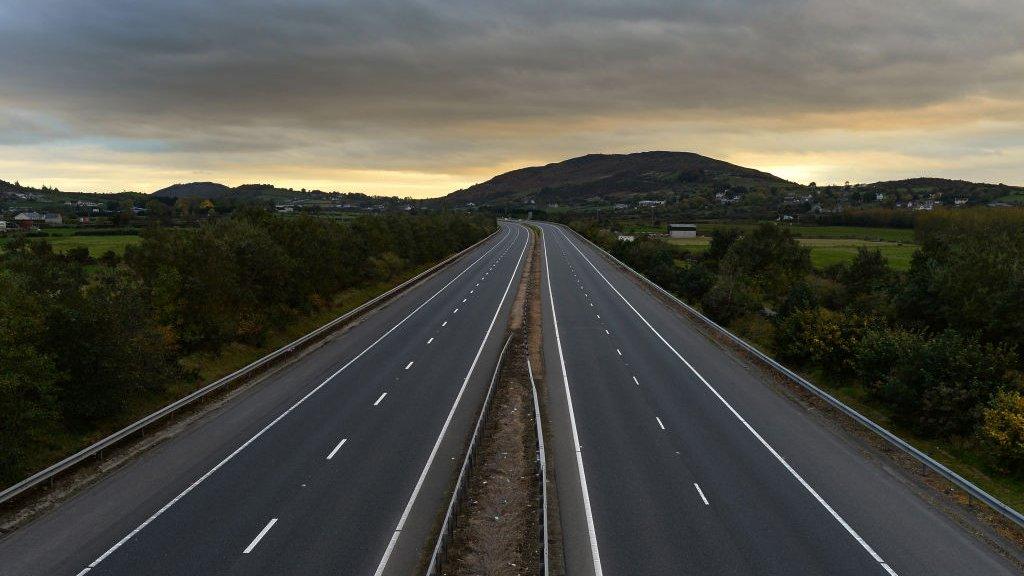Brexit: Tories prepare to ‘sow division’ in EU
- Published

Boris Johnson speaking after the Conservative Party won a clear majority in December's UK general election
In Brussels there is a strong sense that the Conservative Party have not woken up to the trade offs and compromises that will inevitably characterise the talks, writes Nicholas Watt.
The drinks were flowing and the mood was humming as the Tory great and good met to celebrate their election victory this week.
Michael Gove had a telling analogy as he praised Tory thinkers who had steered the party towards the ambition of breaching Labour's "Red Wall".
The likes of the former No 10 aide Will Tanner had provided a form of "in-flight refuelling" for the aircraft of the Tory party.
There was a danger, Gove noted, that after nearly a decade in office, the Conservative Party could run low on the fuel of ideas.
But Will Tanner's Onward think tank had been on hand with its in flight refuelling tanker.
Onward had identified Workington Man, a northern rugby league supporter, as a key target for the Tories. The party duly won Workington for the first time in over 40 years.
The in-flight refuelling had performed a starring role, Gove noted, in helping to deliver an unprecedented fourth successive general election first place with an increased Tory vote each time.
All so happy, all so relaxed as the Tories celebrated their success at the Westminster gathering. But hovering in the air before, and long after that successful political in flight refuelling, is Brexit.
With or without the bongs of Big Ben, Brexit will, in a technical sense, be delivered on 31 January as Britain leaves the EU.

The UK will leave the EU on 31 January
But the Brexit story will be far from over then as attention turns immediately to talks on the UK's future relationship with the EU.
As the Tories have been basking in their election victory, the EU has in recent weeks issued warnings about how tough the talks will be.
In Brussels there is a strong sense that the Tories have not woken up to the trade offs and compromises that will inevitably characterise the talks. Officials believe the UK has only tuned into two aspirations agreed by all - the need for zero tariffs and zero quotas on goods.
These EU officials fear the UK has not focused on a third EU demand - no dumping. That means that if the UK wants zero tariffs and zero quotas it cannot embark on social dumping - gaining a competitive advantage over the EU by cutting labour and environmental standards and lowering taxes.
Senior UK officials say they understand exactly what the EU is saying.
One tells me: "We understand the EU is nervous about having a big economy on its doorstep that could undercut it by reducing standards. But we're not bothered. We want to do our own thing. Lots of our standards will be better."
Cabinet ministers close to the future trade talks believe the UK also has two advantages in the talks:
Divisions within the EU. During the withdrawal talks the EU united around three areas - money, citizens' rights and Northern Ireland. But in the future trade talks the 27 EU members will have different and sometimes competing interests.
One cabinet minister told me: "The 27 have differing interests. The French really care about fishing, the Poles don't care about fishing, they care about freight and the Maltese don't care about freight, they care about tourism. So member states could trade off and say we will champion two issues to help each other. Boris could then burn a bridge on that issue and effectively sow division."
The "credible" threat of no-deal. Ministers believe that if the talks prove too difficult Boris Johnson will be taken seriously if he threatens to break off the talks without a deal.
Failure to reach a deal in the trade talks would have less grave consequences for Britain than a no deal Brexit without a withdrawal agreement last year, according to ministers.
They point out that the three elements at the heart of last year's deal - Northern Ireland, citizens' rights and the UK's exit payment - will stand whatever happens.
The cabinet minister told me:
"Boris can say to the EU: you know I was prepared for the original no deal last year but was thwarted by parliament which blocked no-deal. I am now prepared for a WTO no-deal [trading on WTO terms in the event of no trade deal] which isn't so bad and I can do what I like in Parliament. So it is a credible threat."
These interpretations will be hotly contested by the EU and by pro-Europeans who want to fashion a close relationship with the EU. Brussels will say the EU has an abiding and common interest in preserving the integrity of the single market.
And pro-Europeans will challenge the idea that relying on WTO trading terms for the largest part of the UK's exports would be straightforward.
The opening skirmishes in the next round of Brexit talks have so far been a gentle affair. The Tories are still riding high after their election win but the atmosphere will soon heat up as the pace quickens.
You can watch Newsnight on BBC Two at 22:30 on weekdays. Catch up on iPlayer, subscribe to the programme on YouTube and follow it on Twitter.
- Published23 January 2020

- Published21 October 2019

- Published30 December 2020

